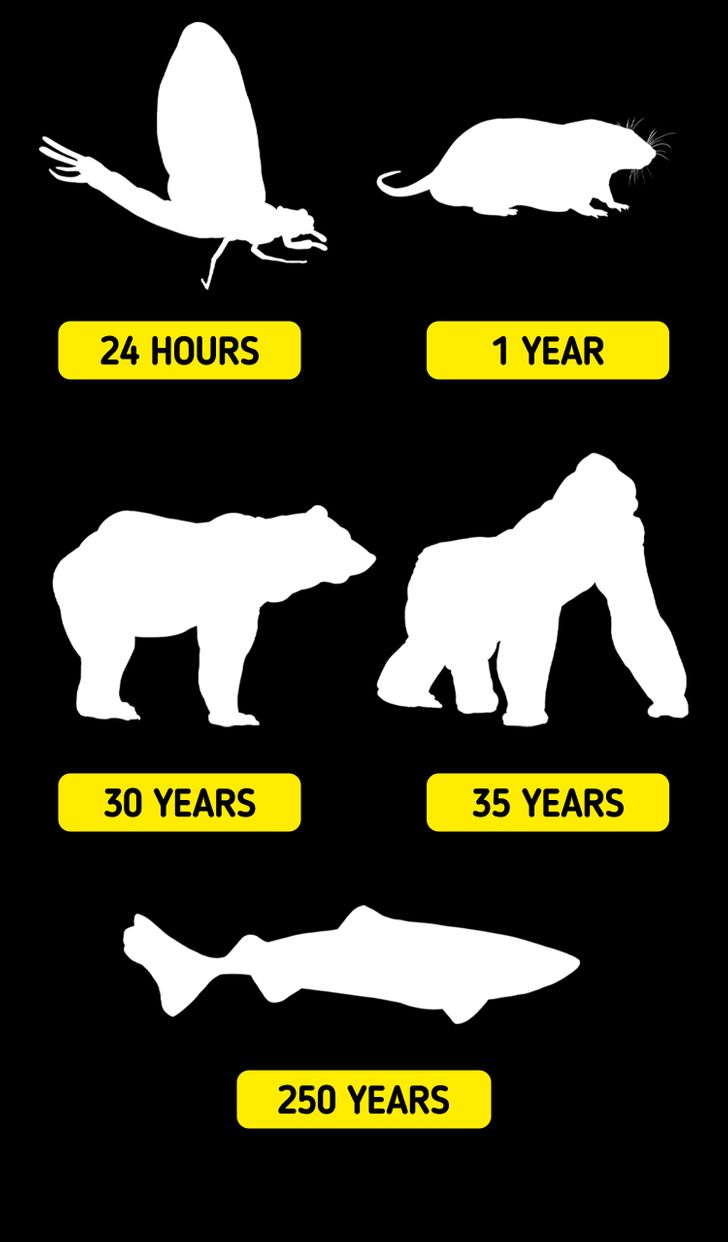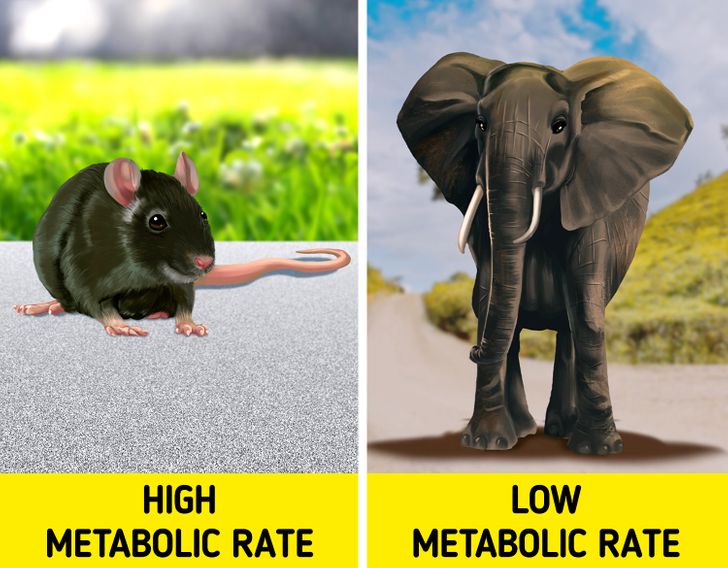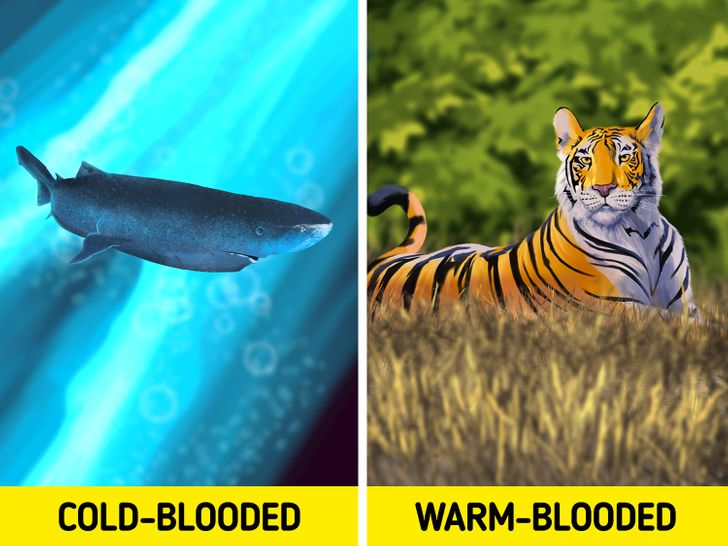Why Big Creatures Live Longer
There are 4 main reasons why bigger animals live longer than their smaller counterparts, like their size and metabolism, for example. We at 5-Minute Crafts will explain to you exactly why these matter.
1. They might not be prey.

Smaller animals are more likely to be eaten by predators in nature. Additionally, they’ll have babies early, and age quickly afterward. This leaves little room for any sort of evolution that would make them live longer. On the other hand, animals like elephants won’t be hunted like this, so they can evolve to live longer.
For example, the average lifespan of a mayfly is 24 hours, that of a black rat is 1 year, a brown bear’s lifespan is anywhere from 25 to 30 years, a gorilla’s is 35, and a Greenland shark, 250 years.
2. Their metabolism might also be important.

Bigger animals have lower metabolic rates, which means when they’re digesting their food, they’ll consume less energy to do so in comparison to smaller ones. However, even though this seems to be true in a lot of cases, there are many birds and bats that live longer than they should, considering their fast metabolism. This means that metabolic rates don’t always equal a short lifespan.
3. They have a low body temperature.

Animals that live in cold environments or that have a low body temperature (cold-blooded) hold the record for the longest lifespans. It may be because a lower temperature slows the animal’s metabolism down and reduces the damage they suffer from this process. Researchers have also suggested that it’s the cold that allows changes in their hormones, which affects them in such a way that makes them live longer.